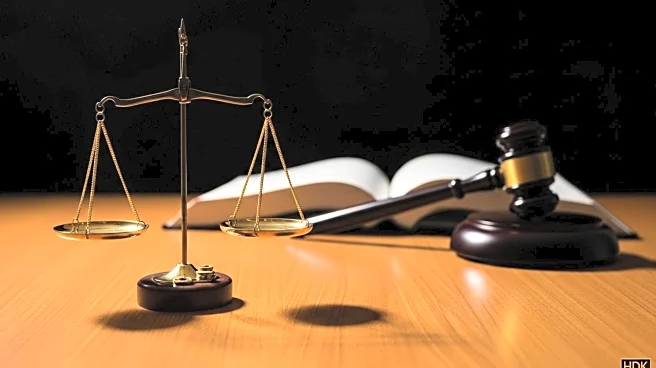What's Happening?
Barry Ragsdale, an attorney from Dominick Feld Hyde, has expressed concerns over what he perceives as a dangerous expansion of judicial power in Alabama. This expansion, according to Ragsdale, aims to keep civil rights lawyers in line and discourage them from litigating in the state. He noted that nationally-known civil rights lawyers involved in the case have stated they will avoid litigating in Alabama in the future, suggesting that the judicial actions have achieved their intended effect.
Why It's Important?
The implications of this development are significant for civil rights advocacy in Alabama. If prominent civil rights lawyers choose to avoid litigating in the state, it could lead to a reduction in legal challenges against potential civil rights violations. This may impact the enforcement of civil rights laws and the protection of marginalized communities. The situation highlights the tension between judicial authority and civil rights advocacy, potentially affecting the legal landscape in Alabama and beyond.
What's Next?
The future may see increased scrutiny of judicial practices in Alabama, particularly concerning civil rights cases. Legal professionals and civil rights organizations might push for reforms or seek alternative venues for litigation. The broader legal community could engage in discussions about the balance of judicial power and civil rights protection, potentially influencing policy changes or legislative action.
Beyond the Headlines
This case underscores the ethical and legal challenges faced by civil rights lawyers in hostile environments. It raises questions about the role of the judiciary in shaping civil rights advocacy and the potential chilling effect on legal professionals committed to civil rights causes. The long-term impact could involve shifts in how civil rights cases are approached and litigated in states with similar judicial climates.











